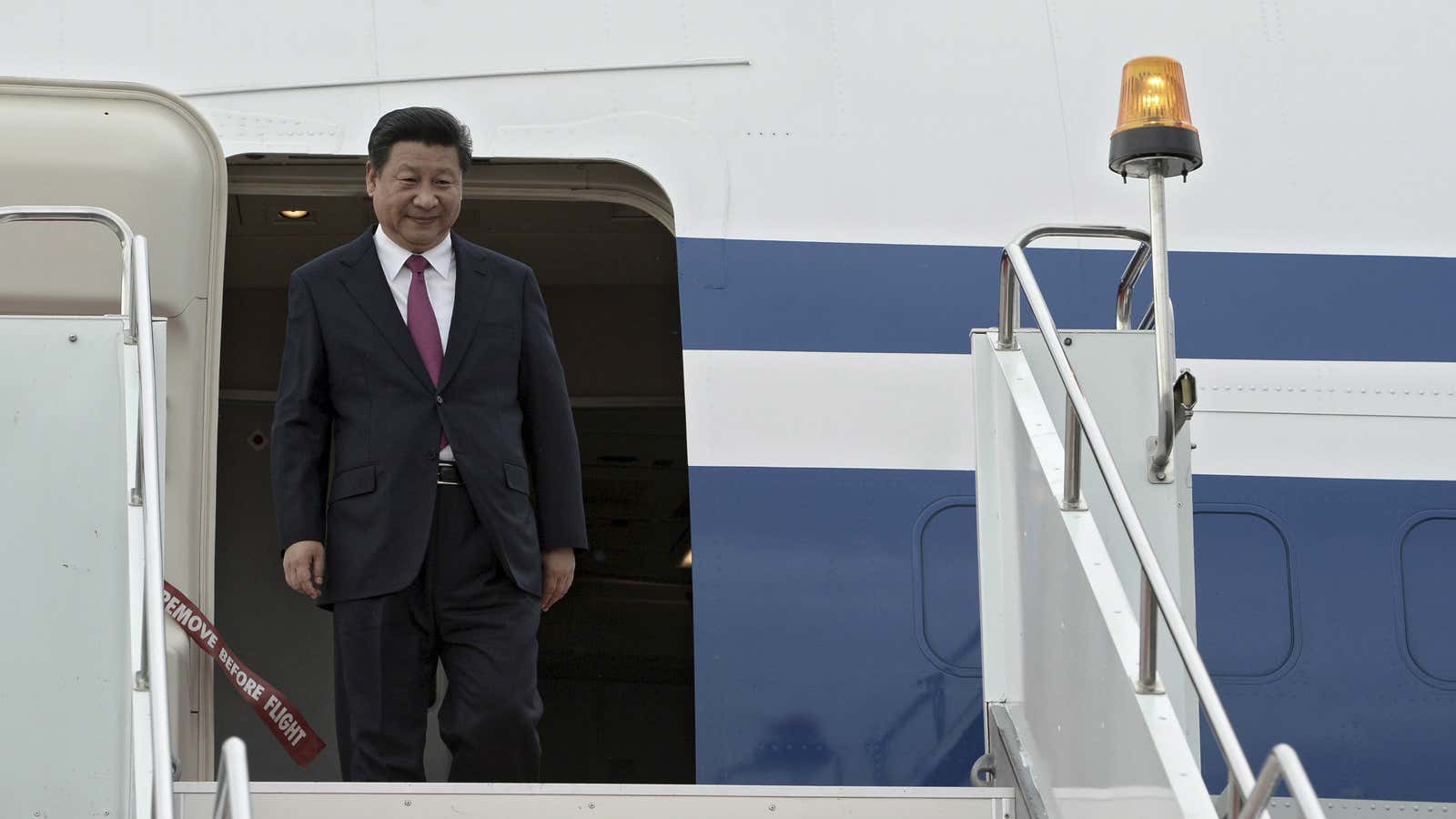Xi Jinping’s first ever state visit to the United States, expected to take place on Sept. 24-25, is going to be preceded by a short, meeting-filled pit stop in Seattle that begins Sept. 22. While at the White House Xi is expected to talk everything from cyber-security to climate change, the Seattle visit sounds like it will be strictly business—pairing Seattle-based companies Microsoft, Amazon, and Boeing with China. Here’s a brief roundup of Xi’s expected agenda:
- The evening of the 22nd, Xi will attend a “dinner organized by trade groups,” the Wall Street Journal reported (paywall).
- The Paulson Institute, a think tank founded by former treasury secretary Henry F. Paulson, will host a two-hour dialogue with 15 executives from China and 15 from the United States on the 23rd. Industries represented include tech, oil, finance, and entertainment. A source familiar with the matter tells Quartz that Xi has confirmed his attendance.
- Xi will visit Boeing’s headquarters and tour its Everett factory on the 23rd, The Seattle Times reports, where a new deal for Boeing to open a 737 “delivery and completion center” in China is expected to be announced.
- Xi will attend a dinner with Microsoft founder Bill Gates in his private home on the 23rd, the Wall Street Journal reported, citing an unnamed source. Microsoft declined to comment.
- On the same day, the US-China Internet Industry Forum, co-hosted by Microsoft and the Internet Society of China, will be held in Seattle. An annual event in its eighth year, the forum in the past has featured delegates from governments and corporations in both countries. The New York Times reports that China’s internet czar Lu Wei, who attended the event last year, will be making an appearance once again (paywall), and corporate invitees include Facebook, Apple, and IBM. It is “unclear” whether Xi will attend, the Wall Street Journal reports.
There will be plenty for Xi to talk about with Seattle’s tech executives. Over the past year tensions have mounted between the US and China over digital technology, both in the private sector and national security.
In February, Chinese anti-trust suits forced Qualcomm to pay $975 million for allegedly charging unfairly high licensing fees for its chips. Many US-based tech firms have expressed concerns over a proposed law in China that would require foreign companies to provide the Chinese government with “back-doors” to any hardware or software they hope to sell there.
Meanwhile, China’s state-affiliated Tsinghua Group has made a high-profile bid for Idaho-based memory chip maker Micron. If formally accepted, the deal could get swiftly swatted by the US Federal Communications Commission (FCC), signaling to China its presence isn’t welcome on US soil.
